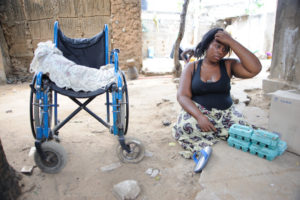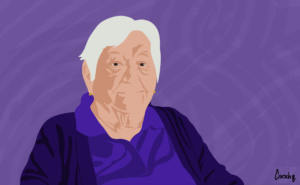
On Sunday 8 December, Syrians all over the world watched and listened, transfixed as Bashar al-Assad’s regime collapsed and 53 years of tyranny came to an end. Then European governments, with extraordinary insensitivity, competed to be the first to spoil the celebrations and tell the Syrians living in their countries that they should get ready to go home.
Why generate unnecessary anxiety among people enjoying their first taste of possible freedom? Is it that our politicians, battered by populist rhetoric, no longer think of refugees and migrants as actual people, with hopes and emotions like their own, but simply as numbers to be excluded or expelled?
Many Syrian refugees have now been in Europe for years, they are working, have children who were born and brought up in Europe. Many will have pending applications for citizenship. It will be completely unnecessary and inhumane to put any pressure on them to return against their will.
Syrians will go back to Syria, possibly in huge numbers, as soon as they are ready and it becomes clear that conditions in the country are conducive to safe return. The coalition of forces that has just overthrown the regime is comprised of groups with wildly divergent ideologies, and there is no guarantee that any sort of peaceful, democratic government will emerge from the celebrations now taking place on the streets of Syrian cities. Three foreign powers (Israel, Turkey and the United States) are still bombing targets in the country. Under such conditions of uncertainty, insisting on a prompt return of Syrian asylum seekers seems callous and quite likely to be counter-productive, if disorganised mass returns add a further element of instability to the already volatile situation.
Incidentally, in the UK, for example, people should worry in case too many Syrian doctors and nurses abandon their posts in the crumbling National Health Service and return to Syria. Germany, with some 6,000 Syrian doctors, may face a similar challenge. The potential departure from hospitals of qualified personnel could give Europeans a taste of their own medicine. When vacancies are filled with trained personnel from Ghana, Malawi and other countries in Africa and Asia, impoverishing health services in those countries, do we feel any guilt, or concern for people in those countries who can not find decent care?
Wake up people! Show some empathy and compassion. Share the joy of our Syrian neighbours, thank them for their contribution to our society and wish them well in their mission to rebuild their country. And for those who do not wish to return immediately, or possibly ever, let’s welcome them among us and feel proud that they are happy to bring up their families here. Of course, it does not make sense to continue processing asylum applications of people arriving from a country where the circumstances have just changed so dramatically, when those people may be about to change their minds on whether they want to proceed with their asylum application. While the situation in Syria develops over the coming weeks and months, it makes sense to re-deploy the staff looking at Syrian applications and have them focus on applicants from Sudan, Eritrea and other countries. As to the Syrians awaiting the processing of their applications, let’s give them temporary leave to remain along with the entitlements that will enable them to live lives of dignity as they monitor the situation in Syria and plan the next phase of their traumatised lives.
About the author: Martin Barber is a co-founder of UAI. Click for more info.











